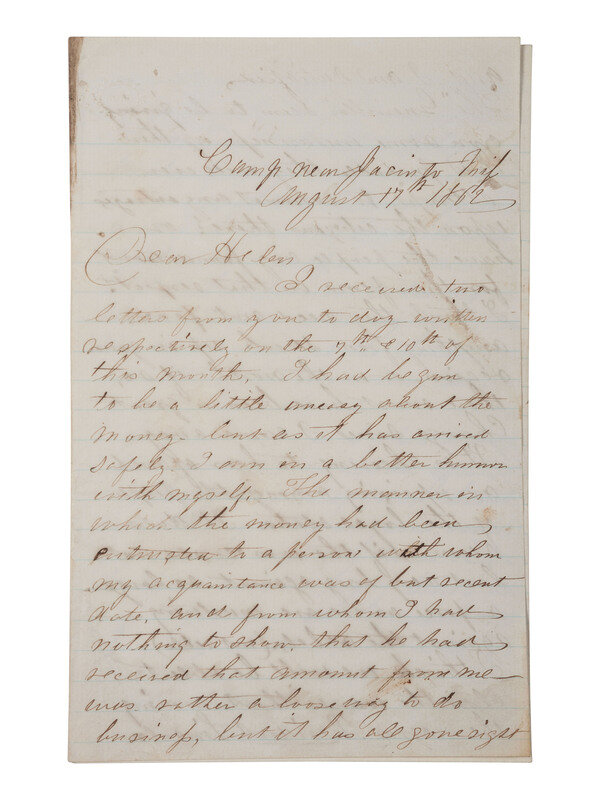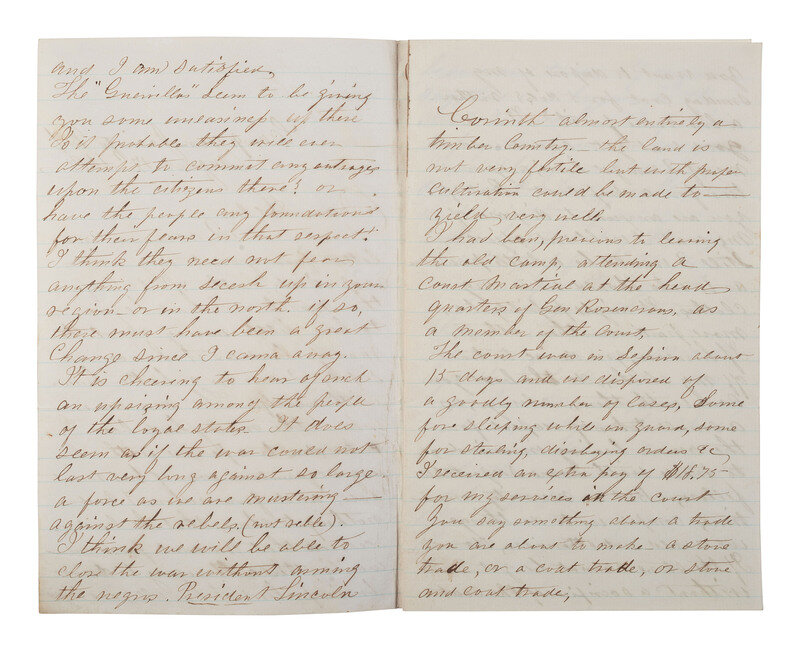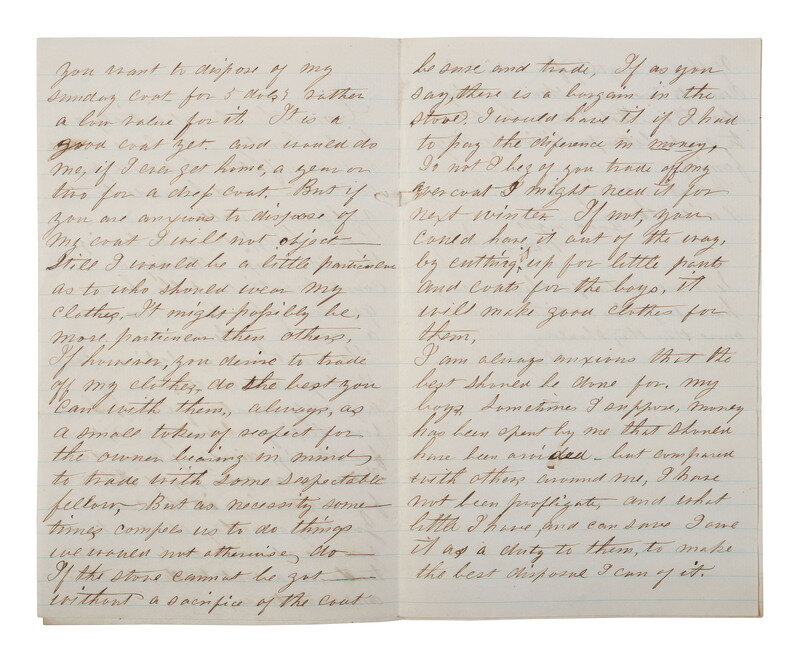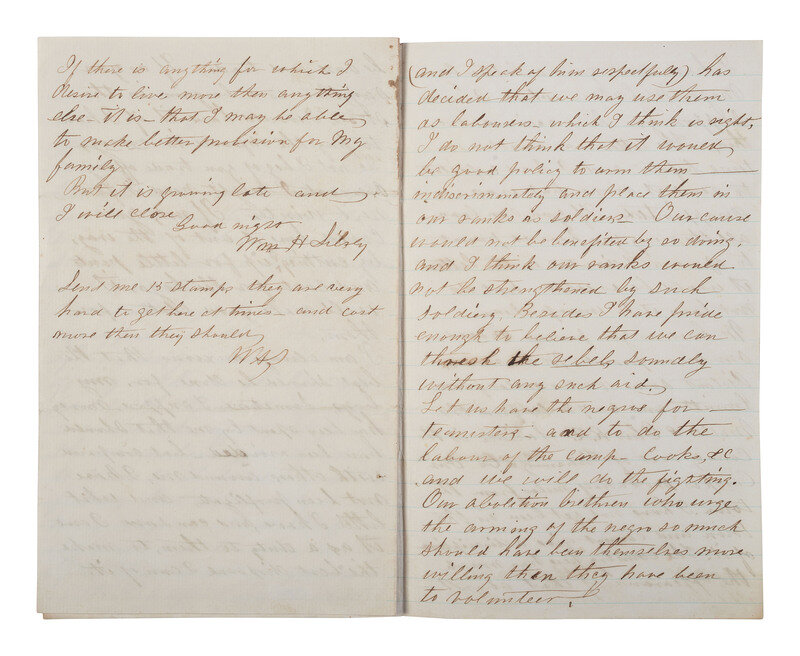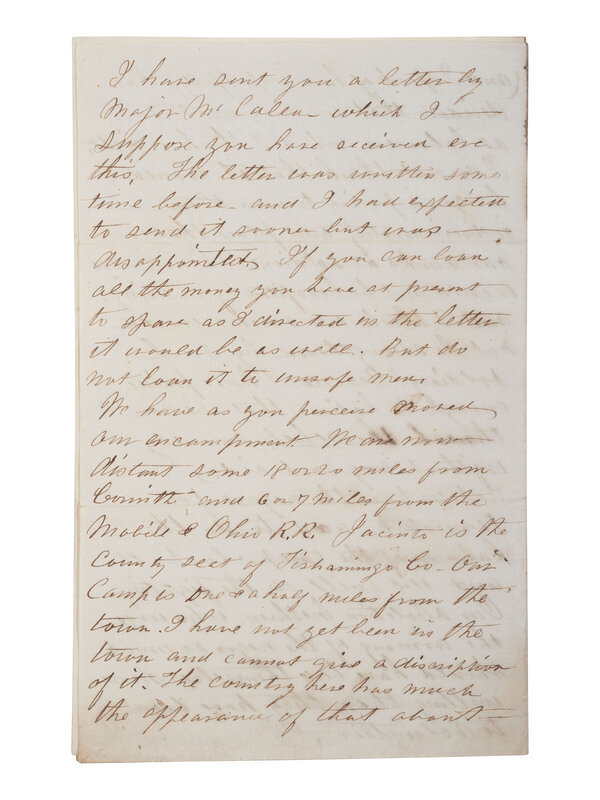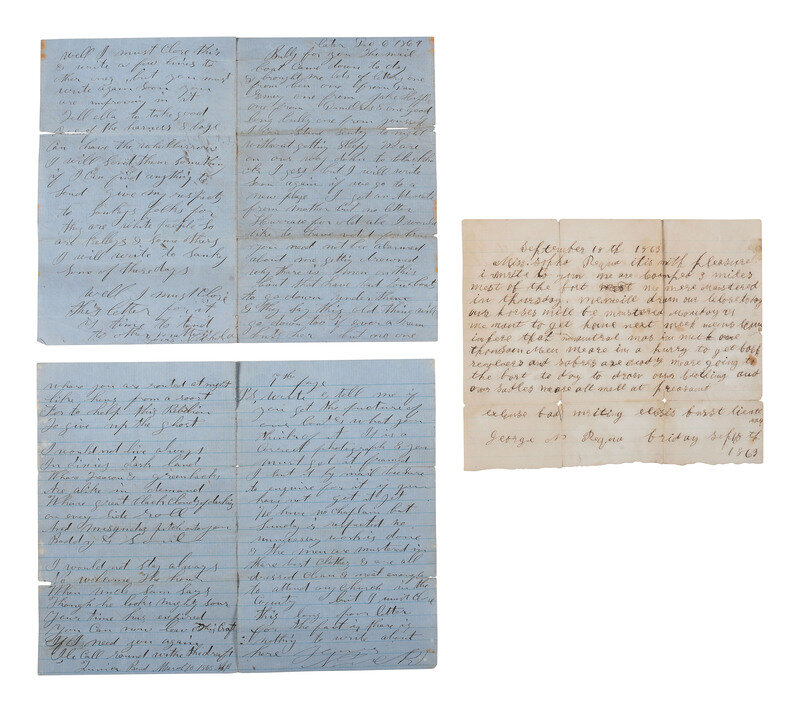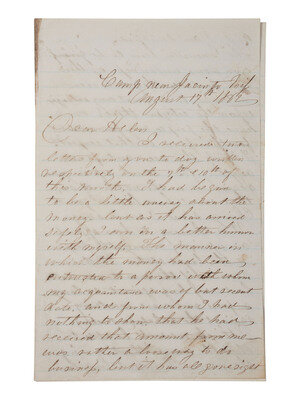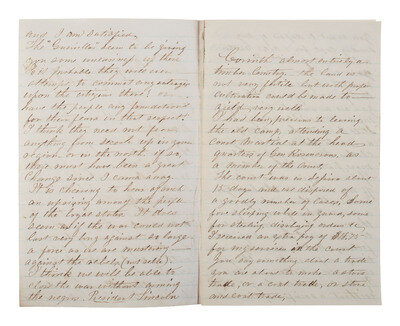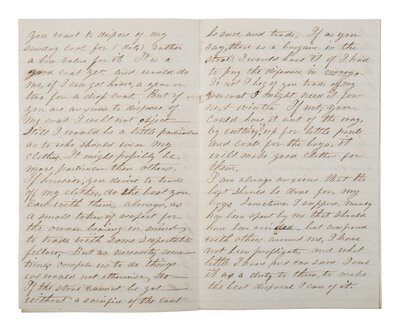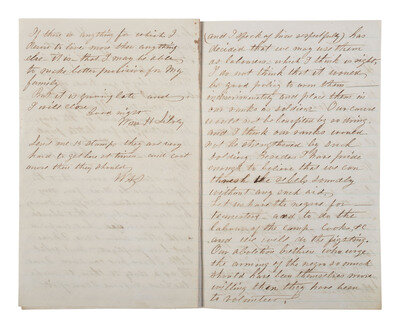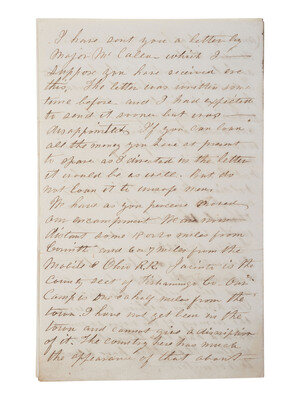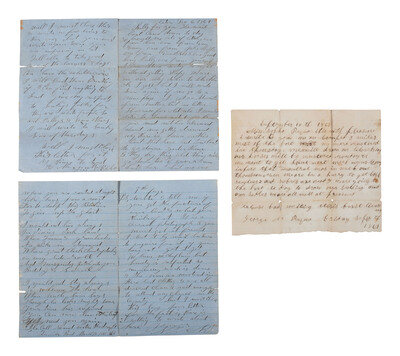Lot 286
[CIVIL WAR]. 3 war-date letters, highlighted by ALS from Captain William H. Silsby, 10th Iowa Infantry, discussing the arming of formerly enslaved African Americans. Camp near Jacinto, MS, 17 August 1862.
Sale 1310 - American Historical Ephemera and Photography, Featuring African Americana
Feb 27, 2024
10:00AM ET
Live / Cincinnati
Own a similar item?
Estimate
$400 -
600
Price Realized
$254
Sold prices are inclusive of Buyer’s Premium
Lot Description
[CIVIL WAR]. 3 war-date letters, highlighted by ALS from Captain William H. Silsby, 10th Iowa Infantry, discussing the arming of formerly enslaved African Americans. Camp near Jacinto, MS, 17 August 1862.
Collection of three letters composed during the American Civil War written by Captain William Silsby of the 10th Iowa Infantry, Private George N. Requa of the 15th Kansas Cavalry, and one unknown author.
William Silsby served as a captain in the 10th Iowa Infantry Regiment. In his letter from "Camp near Jacinto Miss" dated 17 August 1862, just one month before his regiment was engaged at the Battle of Iuka, he writes to his wife, Helen, about financial matters, the position of his encampment, and his opinion of the suggestion to arm African Americans. Captain Silsby categorically rejects the idea, and explains his position in detail. In part: "I think we will be able to close the war without arming the negros. President Lincoln (and I speak of him respectfully) has decided that we may use them as labourers, which I think is right, I do not think that it would be good policy to arm them indiscriminately and place them in our ranks as soldiers...I think our ranks would not be strengthened by such soldiers." Silsby served the Union cause for 4 years of active service and retired at the rank of full colonel. After the war, he resettled his family in Salem, Oregon, where he worked as a postmaster. He died on 8 May 1901 and was interred at Ashland City Cemetery in Ashland, Oregon.
George N. Requa enlisted with the 15th Kansas Volunteer Cavalry, and penned a letter home on 10 September 1863, just a month before his regiment was organized in Leavenworth. In the brief and poorly handwritten letter, Requa eagerly awaits the arrival of his regiment's horses and weapons. The letter provides a rare glimpse into the mind of a soldier awaiting the arming of his unit for a bloody and ongoing war. George N. Requa served through his enlistment and survived the war, passing on 23 June 1911. He is interred in Fairview Cemetery, Bates County, Missouri.
The final letter was penned by an unknown soldier whose signature is illegible in itself, but retains a legible date of 6 December 1864. The contents of the letter make clear that its author served aboard a river boat hauling vital cargoes, and conveys his confidence that he will come to no harm. Its author further mentions his remorse at failing to move his family to Pittsburgh prior to serving. Finally, and most notably, he discusses rumors that the Confederates might be on the verge of forcing enslaved persons to fight with a new draft. In part: "All we want is time to finish this war. But let um [sic] draft for all I care drafted men & n[------] just stand on the same level here espicaly [sic] the drafted men freemen ought always to volunteer..." Overall, a mysterious letter with fascinating subject matter.
William Silsby served as a captain in the 10th Iowa Infantry Regiment. In his letter from "Camp near Jacinto Miss" dated 17 August 1862, just one month before his regiment was engaged at the Battle of Iuka, he writes to his wife, Helen, about financial matters, the position of his encampment, and his opinion of the suggestion to arm African Americans. Captain Silsby categorically rejects the idea, and explains his position in detail. In part: "I think we will be able to close the war without arming the negros. President Lincoln (and I speak of him respectfully) has decided that we may use them as labourers, which I think is right, I do not think that it would be good policy to arm them indiscriminately and place them in our ranks as soldiers...I think our ranks would not be strengthened by such soldiers." Silsby served the Union cause for 4 years of active service and retired at the rank of full colonel. After the war, he resettled his family in Salem, Oregon, where he worked as a postmaster. He died on 8 May 1901 and was interred at Ashland City Cemetery in Ashland, Oregon.
George N. Requa enlisted with the 15th Kansas Volunteer Cavalry, and penned a letter home on 10 September 1863, just a month before his regiment was organized in Leavenworth. In the brief and poorly handwritten letter, Requa eagerly awaits the arrival of his regiment's horses and weapons. The letter provides a rare glimpse into the mind of a soldier awaiting the arming of his unit for a bloody and ongoing war. George N. Requa served through his enlistment and survived the war, passing on 23 June 1911. He is interred in Fairview Cemetery, Bates County, Missouri.
The final letter was penned by an unknown soldier whose signature is illegible in itself, but retains a legible date of 6 December 1864. The contents of the letter make clear that its author served aboard a river boat hauling vital cargoes, and conveys his confidence that he will come to no harm. Its author further mentions his remorse at failing to move his family to Pittsburgh prior to serving. Finally, and most notably, he discusses rumors that the Confederates might be on the verge of forcing enslaved persons to fight with a new draft. In part: "All we want is time to finish this war. But let um [sic] draft for all I care drafted men & n[------] just stand on the same level here espicaly [sic] the drafted men freemen ought always to volunteer..." Overall, a mysterious letter with fascinating subject matter.
Early Photography Collection of Jules Martino, Silverton, Oregon
Condition Report
Contact Information
Auction Specialist
